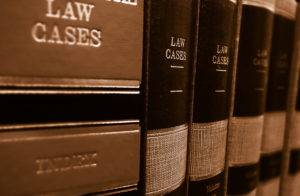Income from Florida personal injury lawsuit settlements is not taxed, but there may be some exceptions.
Any compensation for damages not directly related to your injuries is considered an exception.
Are Settlements from Florida Personal Injury Lawsuits Taxable?
Under the law, Florida personal injury settlements are usually considered liability instead of assets. As a result, they don’t add to your income, which means they are not taxable. Typically, they include compensation for medical expenses, future medical costs, emotional distress and pain and suffering.
Need free legal help in Florida?
We specialize in personal injury claims.

What Damages Are Considered Tax-Free in Florida?
Personal injury damages that are tax-free in Florida include economic damages such as your medical expenses, ongoing medical treatment and noneconomic damages like emotional distress, mental anguish and pain and suffering. However, compensation for these damages is tax-free only when directly related to your personal injury.
What Damages Are Taxable in Florida?
Any damages that are not directly related to your injury are taxable in a Florida personal injury settlement. This includes lost wages, future earning capacity, emotional distress in some cases, pain and suffering and mental anguish.
Common Exceptions to the Rule in Florida
The exception to the rule refers to any compensation for damages that aren’t directly related to your injuries in a personal injury case. For example, if a person experiences emotional distress that does not stem from the injury itself, it may be subject to taxes in a Florida personal injury lawsuit. Another example involves mental anguish when it’s not directly related to the injury.
Need free legal help in Florida?
We specialize in personal injury claims.

How to Know if Your Settlement is Taxable in Florida
A personal injury lawyer can help you to understand whether your settlement is taxable in Florida. As a general rule, however, any compensation you recover that is directly related to your physical injury is not taxable. Portions of your settlement such as money recovered from punitive damages and those that don’t directly correlate to your physical injury are subject to tax in Florida.
How Can Tax Liability Be Minimized in Florida?
If you wish to minimize your tax liability in a Florida personal injury settlement, knowing how this works is crucial. You can take certain steps to minimize your tax liability so that you don’t later owe more money. One way to do this is to have your settlement structured so that it reduces taxes. Your personal injury attorney or a tax advisor can help you with how to best proceed in that area.
You must also know which damages are subject to tax and which as exempt. When you have that knowledge, it puts you in a better position to negotiate a settlement that requires less tax liability to you. Some of your legal expenses can also be counted as deductions on your tax return such as legal fees and travel expenses, for instance. This also allows you to lower your tax liability.
Placing a portion of a large settlement into investment or retirement accounts can also give you a nice tax break.
Keeping a Personal Injury Settlement in Bankruptcy
As long as your personal injury settlement is protected by exemptions, you should be able to keep the money if you file for bankruptcy. Anything not protected by bankruptcy exemptions may have to be relinquished. However, if you are in debt and see no other option to alleviate that burden but to file for bankruptcy, the automatic stay will protect you. This means that your creditors cannot continue contacting or harassing you and trying to collect the debt.
How Do Chapter 7 and Chapter 13 Bankruptcy Compare in Florida?
You can only file for Chapter 7 bankruptcy if you pass the means test. This is used to determine where you stand in terms of income. To qualify for Chapter 7, your income must be below the median in Florida. This comes to just under $21,000 within six months or just under $3,500 per month.
If you file Chapter 7 and then later suffer an injury due to another person’s negligence or intentional act and file a personal injury claim, you can keep your settlement money.
Chapter 13 bankruptcy allows you to repay your debts when you have the financial means to do so but need more time. You can do that by being granted a three- or five-year repayment plan to pay back a portion of your debt to your creditors. Once you have satisfied this requirement, you receive a discharge for your remaining debt and no longer have to worry about it. If you suffer injuries in an accident after filing, you may have to relinquish some of your settlement to the bankruptcy trustee. Medical liens can be put in place to protect you while you receive treatment so that your medical bills can be paid.
Florida Personal Injury Damages and Settlements
In Florida, the damages you can recover in a settlement for a successful personal injury claim include economic and noneconomic damages. Economic are the ones that carry a specific financial cost out of pocket, making them easy to distinguish. Noneconomic damages are trickier because they are not tied to any particular monetary cost. In some cases, the jury may also award the plaintiff with punitive damages. However, this is meant to punish the defendant rather than to reward the plaintiff.
What Are Economic Damages in Florida?
In addition to your medical expenses, economic personal injury lawsuit damages in Florida include non-medical expenses, loss of income and benefits, loss of earning capacity, property damage and pain and suffering.
Understanding Non-Medical Expenses
Non-medical expenses are those unrelated to any expenses directly related to your injuries themselves. This may include expenses such as transportation, home health assistance and more.
Understanding Loss of Income and Benefits
When you are forced to miss extensive time from your job due to personal injury, it means that you don’t get to collect the income you would have normally earned. Your benefits can also run out once you have exhausted their limits to tend to your condition. These damages can reach significant out-of-pocket costs, but you can recover them in your settlement if your case is successful.
Understanding Loss of Earning Capacity
Depending on the severity of your injuries, you may not be able to return to work in any form. When this happens, you are entitled to damages for loss of earning capacity in your personal injury claim. This equates to the amount of money you would have continued to earn had you not become severely injured and forced to leave the workforce.
Understanding Property Damage
If you are involved in an accident that’s the fault of another person, you could be left with property damage. For example, in a car accident, your vehicle may suffer damage that can be repaired or that even totals it. In a slip-and-fall accident, property on your person such as your smartphone can be damaged. In a personal injury claim, you can recover compensation for these examples and others involving property.
Understanding Pain and Suffering
Pain and suffering refers to the way your physical injuries have affected you. You may experience chronic pain or discomfort that interferes with your daily life and regular activities. Although pain and suffering is often thought to be one of the noneconomic damages in an injury case, they are actually considered economic because they directly correlate to your injuries.
What Are Non-Financial (or Noneconomic) Damages in Florida?
In a Florida personal injury lawsuit, you may be entitled to recover non-financial or noneconomic damages. These include things like scarring, disfigurement and physical impairment, loss of companionship, consortium, services and support and loss of enjoyment of life.
What Are Non-Financial (or Noneconomic) Damages in Florida?
In a Florida personal injury lawsuit, you may be entitled to recover non-financial or noneconomic damages. These include things like scarring, disfigurement and physical impairment, loss of companionship, consortium, services and support and loss of enjoyment of life.
Understanding Loss of Companionship, Consortium, Services and Support
When a person is killed by someone else’s negligence and the victim’s personal representative files a wrongful death lawsuit on the surviving family members’ behalf, damages such as loss of companionship, consortium, services and support are available to claim. These are very real damages suffered by the decedent’s survivors that can change their lives significantly when they no longer have the love, guidance and financial support of that person.
Understanding Loss of Enjoyment of Life
Loss of enjoyment of life can be claimed as part of your noneconomic damages in a personal injury lawsuit. They refer to the emotional and psychological toll an injury takes on your everyday life. For example, you might be unable to continue doing certain things you once loved and took for granted due to your injury. This equates to loss of enjoyment of life.
What Factors Do Insurance Companies Consider in Settlement Negotiations in Florida?
Insurance companies consider certain factors when it comes to settlement negotiations in Florida personal injury cases. They include the at-fault or negligent party, the severity of the plaintiff’s injuries and the cost of related medical bills.
Factor of the At-Fault or Negligent Party
If it’s clear that the insurance company’s policyholder is at-fault for the accident or situation that caused the plaintiff’s injuries due to negligence, the insurer is more likely to negotiate on a settlement. It’s also possible to have more success when seeking a satisfactory settlement amount because liability is more obvious.
How Severity of Injuries Plays In
As a general rule, the more severe the plaintiff’s injuries, the more likely the insurance company is to be open to negotiating a fair settlement. Insurers don’t want any negative publicity, so the severity of the injuries increases the chances of getting a better settlement offer.
Understanding Related Medical Bills and Insurance Companies
When an injured person has medical bills that show how much money they have had to pay out of pocket for their treatment, it increases the chances of a favorable outcome when settlement negotiations occur between their attorney and an insurance company.
What Steps Can You Take to Maximize Your Potential Compensation?
There are various steps you can take to maximize your potential compensation in a personal injury case. Things you should do are see a doctor, follow the doctor’s advice, preserve important evidence, avoid speaking with insurance companies and contact a Florida personal injury law firm.
Why Follow Your Doctor’s Advice?
Following your doctor’s advice serves a twofold benefit: it allows you to have the best chance of recovery from your injuries and shows that you are doing everything right in your personal injury lawsuit. If you expect to recover a settlement from an insurance company, the insurer is more likely to pay better compensation when you follow your doctor’s orders.
Why Preserve Important Evidence?
The more evidence you preserve in your case, the better your chances are of recovering the maximum compensation. Plentiful evidence is always beneficial to your case.
Why You Should Avoid Speaking with Insurance Companies
Insurance companies don’t have the goal of helping out injured parties. Instead, they prefer to avoid paying out settlements at every turn, which is why insurance agents often try the lowball settlement offer tactic. This ploy is more likely to happen when the injured person speaks with an insurance representative. To prevent this from happening or to prevent the insurer from refusing to make a settlement offer at all, avoid talking with them yourself and let your personal injury attorney handle that task instead.
Why Contact an Injury Law Firm?
When you contact a Florida injury law firm, it gives you an edge in your personal injury lawsuit. Hiring an attorney to handle your case means that you have the expertise and experience on your side as you don’t have to worry about being taken advantage of by an insurance company. Your lawyer can handle all the red tape involved in your case as you focus on recovering from your injuries.
Frequently Asked Questions
Are Personal Injury Settlements in Florida Taxable?
Only portions of your personal injury settlement may be taxable in Florida. Specifically, any damages not directly related to your injuries are subject to tax.
What Is the Tort Threshold in Florida?
There is a tort threshold in Florida personal injury claims. This requires that a victim has sustained one of four types of injuries in order to recover noneconomic damages. Those categories are permanent injury, severe scarring or disfigurement, significant or permanent loss of a major bodily function or death. The tort threshold only involves noneconomic damages.
Is My Spouse Entitled to My Personal Injury Settlement in Florida?
If you and your spouse are in the process of a divorce in Florida, your personal injury settlement is not subject to property division. This means that your spouse will not receive any of your settlement as it’s not considered marital property. This is especially true if you received your settlement before marriage.
Are Personal Injury Settlements Taxable in the U.S.?
Some of the damages in personal injury settlements are taxable in the U.S. while others are not subject to taxes. Specific damages that are taxable include emotional distress unrelated to your injuries, interest received on settlements and punitive damages.
How to Avoid Paying Taxes on Settlement Money
Different factors determine whether you have to pay taxes on settlement money. Speaking with an attorney or tax advisor can help when you want to avoid paying taxes toward your settlement. Generally, anything not directly related to your physical injuries may be subject to taxes. However, you can minimize your tax obligation by investing some of your money or putting it into a retirement account.
Is My Personal Injury Settlement Considered Income?
Although personal injury settlements are deemed income, they are not taxable on the federal level. This means the Internal Revenue Service (IRS) will not claim any of it unless your settlement is used to replace your income. Punitive damages are usually taxable as well.
How Much Taxes Do You Pay on Lawsuit Settlements?
If your settlement is from a personal injury lawsuit, you only have to pay taxes on any damages not directly correlated with your injuries. Structured settlement payments can help you decrease your tax obligation.
Do I Have to Report a Personal Injury Settlement to the IRS?
Because some of your personal injury settlement might be subject to tax, it’s wise to report it to the IRS. For example, punitive damages would have to be reported as “other income.”
Need free legal help in Florida?
We specialize in personal injury claims.






